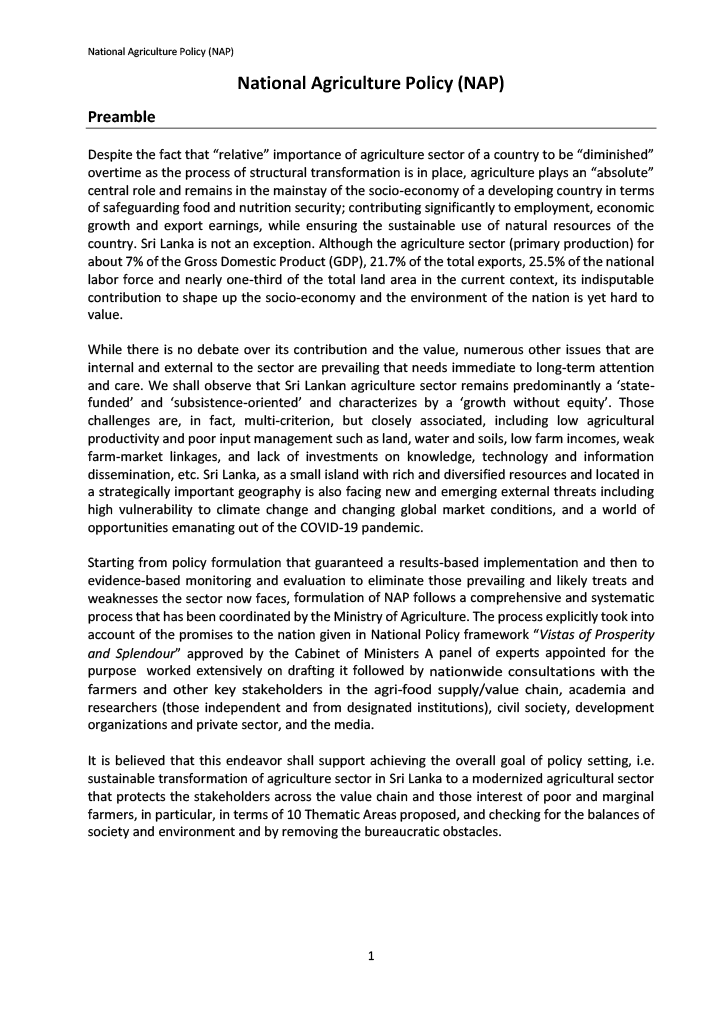The National Agriculture Policy of Sri Lanka 2021 focuses on crop production and productivity improvement, true self-sufficiency in basic food needs (food independence), planned resource use, market competitiveness, climate resilience, minimizing all risks and uncertainties, and mainstreaming gender and youth in agriculture.
It’s vision is for “A sustainable food security to achieve national prosperity, which can be achieved by “Creating a socially-acceptable and sustainable food system in Sri Lanka through a globally competitive agricultural production, processing and marketing mechanism.”
Its expected goals by 2030 include: (1) Double the resource-productivity (compared to 2020 estimates) by adhering to sustainable agriculture practices; (2) Double the economic profitability of farmers/agri-producers (compared to estimates of 2020); (3) Increase the contribution of the Agri-Food System to 1/3rd of the National Economy; (4) Increase the adoption technology developed locally along the agri-food value chain, by a minimum of 50% from that of 2020; (5) Supply safe and quality food in compliance with food control regulations of the country; (6) Establish a government-regulated food control system supporting certification, standardization, and other logistics; (7) Establish farmer/agri-producer groups with Agri-entrepreneurship capacity, coupled with efficient market systems; (8) Establish a constituted role and mandatory participation of farmers/agri-producers in the process of decision-making in the development of agri-food systems; (9) Agri-food system in Sri Lanka is free from impacts of climatic and other disasters; and (10) A system of transparent, accountable, responsible and participatory governance is established for decision-making in agri-food systems.
The Policy was retrieved from the Ministry of Agriculture of Sri Lanka and was published in 2021.
Recent Updates:
On 31 March 2021, it was reported that the Agriculture Minister appointed an expert committee representing the Ministry of Agriculture, the Department of Agriculture, and the Department of Agrarian Development, as well as universities, the private sector, and the farming community to seek stakeholder and public feedback on the draft policy by 25 April.
Help SAR-Climate keep this document page accurate and updated by suggesting an edit or any corrections here.

